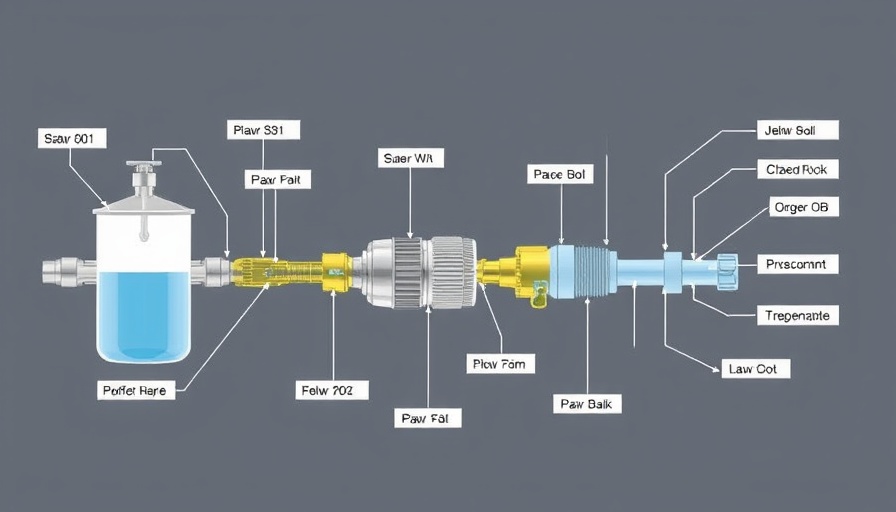
The Role of AI in Enhancing Chemical Grouting Techniques
Soil liquefaction, where saturated soil loses its structure, has significant implications for infrastructure stability, particularly evident in the aftermath of the 2011 Great East Japan Earthquake. With extensive damage reported in the Tokyo Bay area, the importance of effective ground stabilization methods has become ever more critical. Chemical grouting, a process that involves injecting grout into soil to replace pore water with a solidifying agent, stands as a viable solution but faces challenges in heterogeneous soils with areas of low permeability.
Innovative Approaches to Soil Stabilization
Previously, researchers faced difficulty in achieving uniform chemical grout distribution in such soils. A study utilizing the Finite Element Method (FEM) identified that grout often bypassed low-permeability zones, hampering effective soil remediation. Recognizing this issue, a research team led by Professor Shinya Inazumi at the Shibaura Institute of Technology in Japan has taken a major step forward by integrating artificial intelligence (AI) technologies into traditional permeation analysis.
Combining Traditional Methods with Advanced AI
In a recent publication in Results in Engineering, Inazumi discusses the integration of AI-based predictive models with FEM analysis to assess grout behavior in challenging soil conditions. This novel approach, which combines traditional methods with machine learning techniques like neural networks and gradient boosting decision trees, significantly enhances the ability to predict and optimize grout permeation in complex soils.
Understanding the Process and Its Significance
To begin the analysis, the researchers created a model with defined low-permeability zones and employed 2D FEM analysis to calculate permeation velocity. By identifying parameters that posed a greater than 10% risk for permeation failure, they could utilize multiple regression analysis for accurate risk predictions. Consequently, a dataset generated through FEM served as training data for both AI models, allowing for improved accuracy in predicting grout behavior.
The Broader Implications of AI in Engineering
The integration of AI into chemical grouting processes represents a significant advancement in engineering and construction technology. As urban areas continue to grapple with aging infrastructure and natural disaster preparedness, these innovative techniques could bring about safer and more efficient soil stabilization methods. It manifests the transitional shift in the engineering field, where traditional skills and knowledge amalgamate with cutting-edge technology to produce enhanced outcomes.
Why Understanding AI's Role Matters
For engineers and construction professionals, recognizing the potential of AI in traditional practices opens new avenues for research and implementation. As industries evolve, knowledge of tools like AI and machine learning becomes essential for enhancing operational efficiency. This shift not only promises improved soil stabilization but also sparks discussions on ethical implications and the future of technology application in engineering.
As we further investigate the intersection of AI and civil engineering, professionals in the field must stay informed about ongoing innovations and their potential impact on project outcomes. Engaging with these advancements will contribute to more resilient and adaptive engineering practices capable of addressing complex soil challenges.
 Add Row
Add Row  Add
Add 




Write A Comment